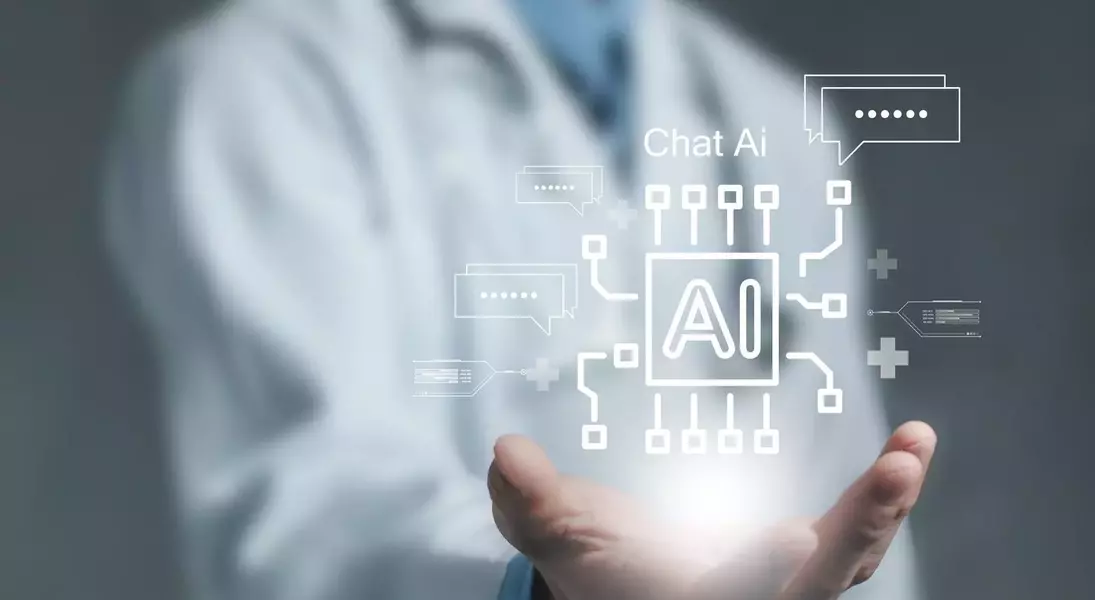The global healthcare arena is grappling with two significant hurdles - an inundation of patient data and operational inefficiencies that sap resources and burden medical professionals. GE HealthCare firmly believes that artificial intelligence holds the key to addressing these issues concurrently, and they are wholeheartedly committed to AI deployment across their organization.
"GE HealthCare: Pioneering AI for Global Healthcare Transformation"
Transforming Cancer Care With Multi-Agent AI
In the Health Companion research initiative, multiple AI agents are harnessed to mimic the collective expertise of a multidisciplinary cancer care team. Each agent specializes in a distinct medical domain such as radiology, oncology, genetics, and pathology. They independently analyze patient data before a supervisory agent integrates their insights. Consider the most complex cases where assembling a tumor board can take weeks or even longer. The Health Companion project aims to drastically shorten this timeline and make expert-level cancer care analysis accessible to all. The system's vision extends beyond basic analysis. For instance, it can distinguish between expected treatment-related symptoms and those indicating disease progression like cancer spread. When concerning patterns are detected, the system alerts the care team with suggested next steps, facilitating more proactive and timely interventions. This functionality is built with robust safety and explainability principles, ensuring healthcare providers can understand and verify the AI's decision-making process.Another aspect of this initiative is the potential to enhance the accuracy and speed of cancer diagnosis. By combining the specialized knowledge of multiple AI agents, the system can provide a more comprehensive view of the patient's condition. This could lead to earlier detection of cancer and more targeted treatment plans.Making Radiologists' Lives Easier
In the face of growing radiologist shortages and a 3-5% annual increase in imaging volumes, GE HealthCare is developing sophisticated AI solutions. Their full-body X-ray foundation model, trained on 1.2 million anonymized images, is a significant breakthrough in medical imaging AI. In preliminary tests, the model excels in three crucial tasks - segmentation (dividing images into distinct anatomical parts), classification (categorizing images based on medical conditions), and visual localization (precisely identifying specific features like fractures or tumors). Beyond these core capabilities, the system is being tested to automatically generate detailed medical reports, potentially saving radiologists hours of administrative work.Imagine having a single model that can handle all these tasks across all body structures. Developed in partnership with Amazon Web Services, this technology aims to reduce the cognitive burden on healthcare professionals while providing them with efficient and reliable diagnostic tools. Additionally, GE HealthCare is developing specialized AI to streamline mammography screenings. By quickly identifying normal cases (which make up about 90% of all breast screening exams), radiologists can focus more attention on potentially suspicious cases.CareIntellect: Streamlining Cancer Care
The company has introduced CareIntellect for Oncology, a new cloud-first application that consolidates multi-modal patient data into a single view. Planned for wide release in the U.S. in 2025 and subsequent expansion to Canada, the U.K., and Ireland, this platform uses generative AI to transform oncologists' management of patient care. Currently, physicians spend hours catching up on a patient's history and care status, especially for new patients. They have to manually search through multiple databases and piece together information from various sources such as medical images, clinical notes, lab results, and device readings. CareIntellect aims to reduce this time-consuming process from several hours to just minutes.The platform offers practical features to address daily clinical challenges. It can flag missed lab work that might delay the next round of treatment, track adherence to treatment protocols, and help match patients to potentially suitable clinical trials by automatically comparing their health records to trial criteria. The system also maintains compatibility with providers' existing single sign-on systems, eliminating the hassle of multiple log-ins.Tampa General Hospital and UT Southwestern Medical Center are already evaluating this technology. Dr. Peter Chang, Senior Vice President at Tampa General Hospital, notes, "We were impressed by how quickly GE HealthCare was able to design the application to include breast cancer in just a few weeks. We look forward to putting this in the hands of our care teams and using the AI-enabled functionality to enhance patient care."Addressing Global Healthcare Challenges
These innovations are crucial in the context of global healthcare. Nearly half of the world's population, approximately 4.5 billion people, lack adequate access to healthcare. Meanwhile, the healthcare workforce faces unprecedented challenges, with over 50% of physicians reporting burnout and hospitals experiencing 100% staff turnover every five years.GE HealthCare is partnering with organizations like the Bill & Melinda Gates Foundation to expand AI-enabled portable ultrasound technology to underserved regions. By combining AI guidance with portable devices, they are enabling non-specialist healthcare workers to provide high-quality diagnostic services in remote locations.The Future of AI in Healthcare
Looking ahead, GE HealthCare envisions AI becoming an integral part of every medical device and clinical workflow. They are excited about emerging technologies like theranostics, which combines diagnostics and therapeutics to enable more personalized cancer treatments."AI has tremendous potential to assist. However, for it to be safe and effective, it must be developed and practiced responsibly," emphasizes Dr. Kass-Hout. "Patient safety is of utmost importance."The message is clear: AI is not replacing healthcare workers; it is empowering them to work more efficiently and effectively while expanding access to quality care globally. With these innovations, GE HealthCare is working towards a future where healthcare knows no bounds.
